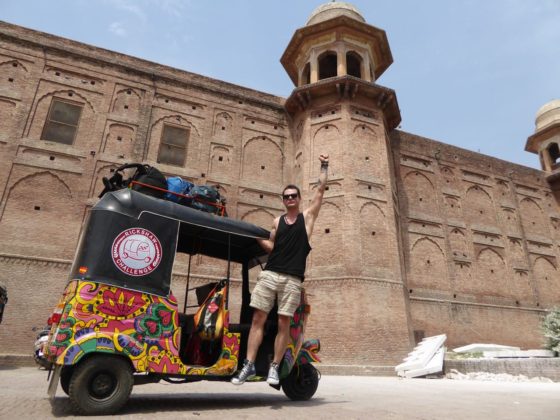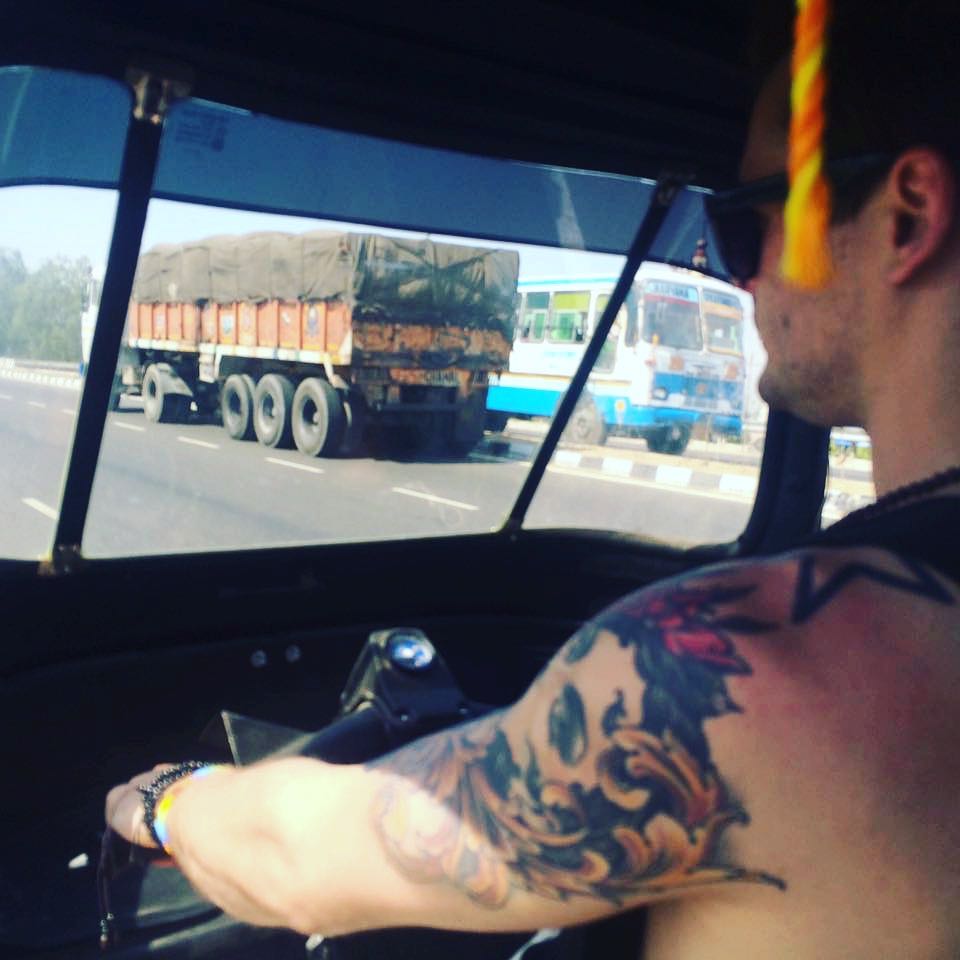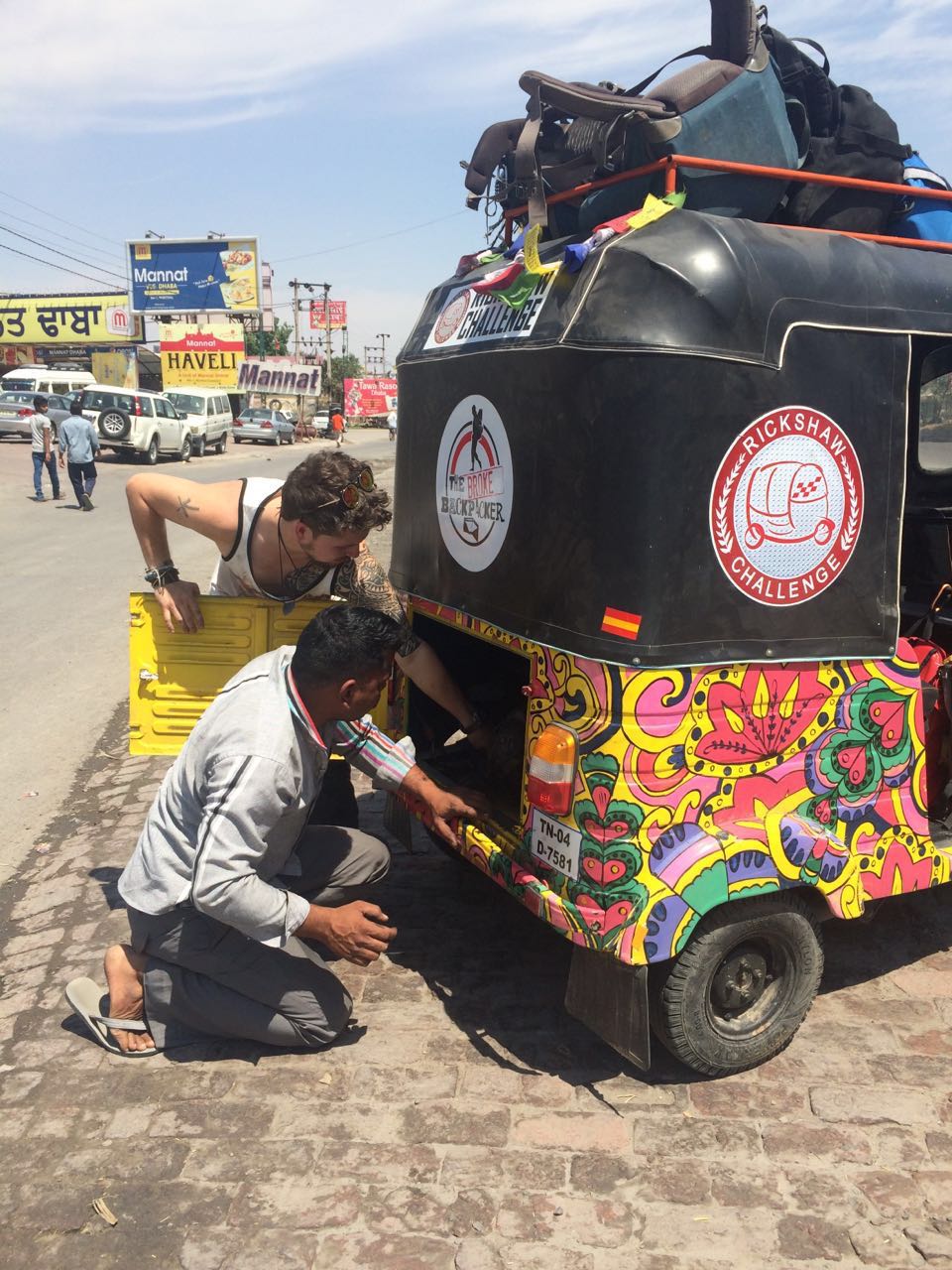THE CLASSIC WAY TO TRAVEL INDIA is either by riding it’s sprawling railways or on the back of a Royal Enfield motorbike. But when I visited India earlier this year, I was looking for something a bit different and altogether more novel. So I jumped at the chance when my good friend Will (aka The Broke Backpacker), invited me to join him as his co-pilot in his customized, psychedelic Tuk-Tuk (which we named Tinkerbell) on a mad dash from Delhi’s chaos towards the fresh mountain air of the Himalayas.
It proved to be a challenging ride as India’s heat and Tinkerbell’s temperament took their toll. But the experience taught me a hell of a lot about India, about the nature of travel, and about myself. Here are 5 things I learned:


